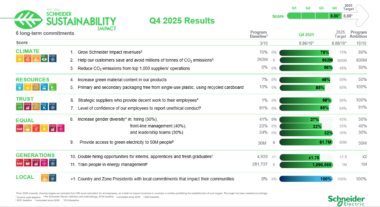Friday 8 December
The Australian Bureau of Meteorology has warned of a heatwave sweeping across the country from the west and smothering New South Wales in well-above-average temperatures. It’s due to peak on Saturday in what will likely be Sydney’s hottest day in years.
As Australians swelter, the European Union’s Copernicus Climate Change Service has already declared that 2023 will be the warmest year on record globally due to climate change.
The following people can talk about the impact that extreme heat is having on the health of people and animals, as well as on communities, farming and fire-fighting.
HOT WEATHER IN CITIES
Emma Bacon, Executive Director and Founder of Sweltering Cities, works directly with communities in Australia’s hottest suburbs, including the likes of western Sydney, and Dandenong in south eastern Melbourne and can provide insights and solutions on how best to prepare people living in cities in the face of worsening extreme heat. Location: Sydney based, currently in Melbourne.
HEALTH IMPACTS
Dr Emma Skowronski - NSW Deputy Secretary of Doctors for the Environment Australia.
Dr Emma Skowronski is a GP with an interest in child health, mental health, women's health and Aboriginal and Torres Strait Islander health. Dr Skowronski has long been concerned about environmental degradation and its impact on human health so has been involved with Doctors for the Environment and the Climate and Health Alliance since 2016. Location: Sydney
Dr Fiona Foo - NSW Deputy Chair of Doctors for the Environment Australia.
Dr Fiona Foo is a (General and Interventional) Cardiologist with interests in Climate Change and Cardiovascular disease, including heat and air pollution on cardiovascular disease and cardiac co-benefits of climate change mitigation. She is an active member of Doctors for the Environment Australia - she can explain the threats that extreme heat poses to vulnerable members of Australian society, especially those with heart conditions. Location: Sydney
Dr Beau Frigault - QLD state chair of Doctors for the Environment Australia.
Location: Gold Coast
Dr Frigault can talk about climate impacts on human health including health impacts from more frequent and intense heatwaves, bushfires and droughts.
"Heat kills more Australians than all other disasters combined. We are all at risk of heat-related illness but some groups are especially vulnerable, including the elderly, people with chronic disease such as heart disease or diabetes; children, rural and remote communities, outdoor workers and community members with poor housing conditions”
ANIMALS
Dr Angela Frimberger, Deputy Chair, Vets for Climate Action, can talk about the impact of heat and climate change on all animals: pets, livestock and wildlife. Location: Port Macquarie, NSW
Dr Anthony Benjamin, Member Vets for Climate Action Gold Coast, Qld
FARMERS
Pete Mailler, farmer, “As a farming business we are completely exposed to the weather. Anticipating an El Niño we have made conservative cropping choices this year. We’ve had a couple of good years and I’m grateful for those. It buys us some time but farming is definitely riskier now than when I started. We see those extreme events, we’re faster into drought, we’re faster into flood. Weather volatility is the hardest thing to manage. Warmer drier weather and huge fuel loads is a very concerning combination.” Location: Goondiwindi, Queensland
Vivien Thomson, NSW farmer and volunteer firefighter, "As a farmer and volunteer firefighter I like to be prepared. We have got 300 big square bales of silage buried in case of another drought. The last drought was shocking. I coped with the millennial drought, but the next one hit so hard and so quickly that rain didn’t make an ounce of difference. It was heartbreaking looking outside." Location: NSW South West slopes
Dr Barry Traill - Director, Solutions for Climate Australia
Location: Sunshine Coast
An ecologist by training, he is also the chair of his local volunteer rural fire brigade on the Sunshine Coast, and he can talk about how warmer and drier conditions can increase fire risks, and the impact that an increasing frequency of bushfires have on our ecosystem.
For interviews
For interview requests, please contact Sean Kennedy on 0447 121 378 or [email protected]
Contact details:
Sean Kennedy - 0447 121 378


